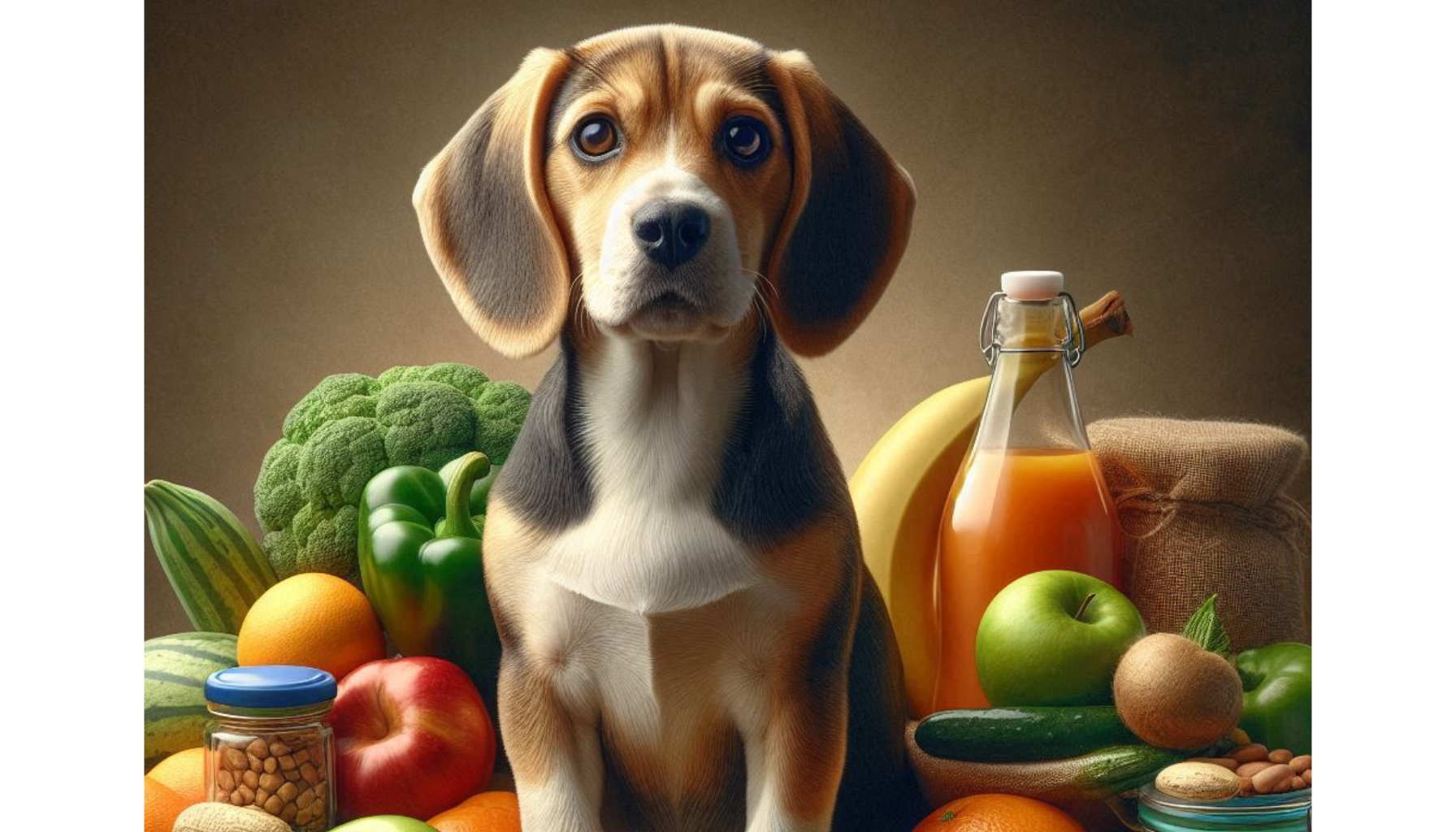Fruits and vegetables can be a healthy and tasty addition to your pet’s diet, providing essential vitamins, fiber, and antioxidants. However, not all fruits and veggies are safe for dogs and cats—some can be toxic and cause serious health issues.
In this guide, you’ll learn which fruits and vegetables are safe for your pet, the health benefits they offer, and which ones you should avoid at all costs.
1. Benefits of Fruits and Vegetables for Pets 🥦🐕🐈
While dogs are omnivores and can digest plant-based foods, cats are obligate carnivores, meaning they don’t need fruits and vegetables—but some can still be given as treats.
✅ Health Benefits:
✔ Rich in vitamins & minerals (boost immunity and organ function)
✔ High in fiber (aids digestion and prevents constipation)
✔ Low in calories (great for weight management)
✔ Full of antioxidants (protect against cell damage and aging)
📌 Tip: Fruits and veggies should make up no more than 10% of your pet’s diet!
2. Safe Fruits for Dogs and Cats 🍎🍌
✅ Fruits Safe for Dogs & Cats:
These fruits are non-toxic and packed with nutrients.
1️⃣ Apples (without seeds) 🍏 – Great for fiber and vitamin C.
2️⃣ Bananas 🍌 – A good source of potassium and energy.
3️⃣ Blueberries 🫐 – High in antioxidants for brain health.
4️⃣ Watermelon (seedless) 🍉 – Hydrating and low in calories.
5️⃣ Strawberries 🍓 – Rich in vitamin C and fiber.
6️⃣ Mango (without pit) 🥭 – Contains vitamins A, B6, and E.
7️⃣ Pineapple (small amounts, no core) 🍍 – Full of digestive enzymes.
8️⃣ Pears (without seeds) 🍐 – High in fiber and antioxidants.
9️⃣ Cranberries 🍒 – Help prevent urinary tract infections.
🔟 Oranges (only small amounts, no peel) 🍊 – Rich in vitamin C but can be too acidic.
🚨 How to Serve:
✔ Always remove seeds and pits (many contain toxic cyanide).
✔ Cut into small, bite-sized pieces to avoid choking.
✔ Feed in moderation to prevent digestive upset.
3. Safe Vegetables for Dogs and Cats 🥕🥦
✅ Vegetables Safe for Dogs & Cats:
These vegetables are nutritious and easy to digest.
1️⃣ Carrots 🥕 – Great for dental health and rich in beta-carotene.
2️⃣ Broccoli (small amounts) 🥦 – Contains fiber but can cause gas.
3️⃣ Spinach (occasional, small amounts) 🌿 – Full of iron and vitamins.
4️⃣ Cucumbers 🥒 – Hydrating, low-calorie snack.
5️⃣ Pumpkin (plain, cooked or canned) 🎃 – Helps with digestion and constipation.
6️⃣ Zucchini 🥒 – A good low-calorie treat.
7️⃣ Sweet Potatoes (cooked, no skin) 🍠 – High in fiber and vitamin A.
8️⃣ Green Beans 🌱 – Low-calorie and great for weight management.
9️⃣ Bell Peppers 🫑 – Rich in vitamin C and antioxidants.
🔟 Peas 🟢 – Good for protein and fiber.
🚨 How to Serve:
✔ Always wash and cook vegetables that are tough to digest.
✔ Avoid adding salt, butter, or seasoning.
✔ Cut into small pieces to prevent choking.
📌 Tip: Raw vegetables may be harder for pets to digest—steaming or boiling makes them easier to eat!
4. Toxic Fruits and Vegetables to Avoid 🚫❌
Some fruits and vegetables are dangerous for pets and can cause serious health problems.
❌ Fruits That Are Toxic to Pets:
🚫 Grapes & Raisins 🍇 – Can cause kidney failure in dogs and cats.
🚫 Cherries 🍒 – Pits and stems contain cyanide, which is toxic.
🚫 Avocados 🥑 – Contain persin, which is toxic to pets.
🚫 Grapefruit & Lemons 🍋 – Too acidic and can cause stomach upset.
❌ Vegetables That Are Toxic to Pets:
🚫 Onions & Garlic 🧄 – Can cause anemia and red blood cell damage.
🚫 Mushrooms (wild) 🍄 – Some contain toxic compounds that can be fatal.
🚫 Raw Potatoes 🥔 – Contain solanine, which is toxic to pets.
🚫 Tomato Leaves & Stems 🍅 – Contain toxins harmful to pets.
📌 Tip: If your pet accidentally eats a toxic food, contact your vet or a poison control center immediately!
5. How to Introduce Fruits & Vegetables to Your Pet 🍽️🐾
If your pet has never tried fruits or vegetables before, start slowly to avoid stomach upset.
Step-by-Step Guide:
1️⃣ Introduce one new fruit or vegetable at a time.
2️⃣ Give a small piece first and watch for reactions.
3️⃣ If your pet enjoys it and has no digestive issues, you can offer it occasionally.
📌 Tip: Some pets may be picky eaters—try mixing fruits or veggies with their food!
6. Fun Ways to Serve Fruits & Vegetables 🍹🎾
Want to make healthy treats more exciting for your pet? Try these creative serving ideas!
✅ Frozen Fruit Treats 🧊 – Freeze small fruit pieces for a refreshing snack.
✅ Mix with Regular Food 🥘 – Add finely chopped veggies to their meals.
✅ Stuff Inside a Kong Toy 🎾 – Fill a rubber toy with mashed banana or pumpkin.
✅ Dehydrated Veggie Chips 🥕 – Bake thin carrot or zucchini slices for a crunchy treat.
✅ Blend into a Smoothie 🍹 – Mix fruit, water, and ice for a pet-friendly smoothie.
📌 Tip: Always supervise your pet when giving new treats!
7. Signs of Food Allergies in Pets 🚨🐕🐈
Some pets may be sensitive to certain fruits and vegetables. Watch for these signs:
🔴 Vomiting or diarrhea
🔴 Itchy skin or rashes
🔴 Excessive licking or scratching
🔴 Swelling of the face or paws
🚨 If your pet shows any of these symptoms, stop feeding the food and consult a vet.
Final Thoughts: Fruits & Veggies as Healthy Treats 🥕🍉🐾
Fruits and vegetables can be delicious, healthy snacks for pets when given in moderation.
✅ Stick to pet-safe options like apples, carrots, and blueberries.
✅ Avoid toxic foods like grapes, onions, and avocados.
✅ Always serve in small amounts and introduce new foods slowly.
🐾 A healthy diet = A happy pet! Choose the right treats to keep them strong and active!
